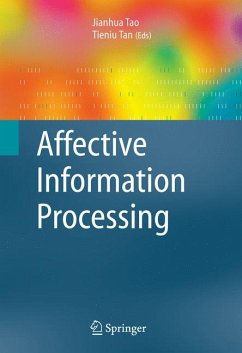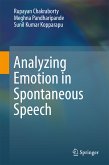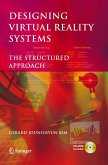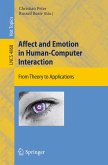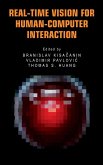This state-of-the-art volume discusses the latest developments in affective information processing, and summarises the key technologies researched, such as facial expression recognition, face animation, emotional speech synthesis, intelligent agents, and virtual reality. The detailed and accessible coverage includes a wide range of topics, including areas which look to challenge and improve current research. The book is organised into the following themed parts to aid the readers in their understanding of the field: Cognitive Emotion Model, Affect in Speech, Affect in Face and Affect in Multimodal Interaction.
Topics and Features:
. Reports on the state-of-the-art research in affective information processing
. Summarises key technologies researched during the last few years, such as affective speech processing, affective facial expressions, affective body gesture and movement, affective multi-modal systems, etc.
. Offers a foundational introductory chapter that grounds readers in core concepts and principles
. Discusses applications of this technology, such as in education against bullying
. Provides summarising conclusions throughout
. Describes affect in multimodal information
. Looks at cognitive emotion modelling in natural language communication
. Explores emotion perception and recognition from speech, and based on multimodal information
. Includes face animation based on a large audio-visual database
. Presents physiological sensing for affective computing
. Examines evolutionary expression of emotions in virtual humans using lights and pixels
Written to provide an opportunity for scientists, engineers and graduate students to explore the difficulties, solutions and technologies in this exciting new area, this ground-breaking book provides a comprehensive overview and significant insight into the field and will prove a valuable reference tool and resource.
Dieser Download kann aus rechtlichen Gründen nur mit Rechnungsadresse in A, B, BG, CY, CZ, D, DK, EW, E, FIN, F, GR, HR, H, IRL, I, LT, L, LR, M, NL, PL, P, R, S, SLO, SK ausgeliefert werden.

